As I continue with my PhD study, I am motivated to keep questioning, challenging and exploring the health care that is currently available.
I have dedicated the last decade to ‘listening to the voice of the child’ and have felt driven to make sure that the children and young people receiving support from True Colours have their voices heard. Of course there are always the ‘systems’ within institutions that are difficult to navigate at times, but True Colours works hard to try and meet the needs of children and young people.
The New Zealand Child Health Strategy (1998) states that, “Children should be seen, heard and have their needs met”. That is a national commitment from government to care for the children of New Zealand. While there is no doubt fantastic care from most health providers, we have a long way to go.
The children’s commissioner of New Zealand believes there are barriers to children being seen, heard and having their needs met in New Zealand. His paper, ‘Seen but not heard: children’s interests, children’s health and public policy’, highlight the barriers to children gaining the care they need. He identified the invisibility of children with their interests carrying very little weight in the political world. Child health appears to have a low priority within the political realm, therefore policy and strategies are not given the status they deserve. Dr John Angus was speaking to the Health Promotion and Policy Research Unit in Otago at the beginning of this month. This is recognised in a number of fields of paediatric health care and there are many who work in this field that are committed to making positive changes.
Therefore I continue to be committed in lobbying for children’s rights, creating avenues for their voices to be heard and having their needs met. At a child and adolescent regional network meeting I attended this week in Hamilton there was an opportunity to address these issues. The Paediatric Society has been engaged by the Ministry to develop clinical networks for children and young people to have a more consistent approach in the services of health care. The leaders in child health services met to highlight the issues and to put forward ideas on improving clinical pathways to make a positive difference for children and young people. There will be five of these planning meetings around the country.
It is important for those of us who work alongside children, young people and their families, to listen to what they feel is important in health care and advocate strongly on this matter. This is another avenue in letting their ‘voices’ be heard.
The children and young people of this country have rights in healthcare services. The Charter of children’s and young people’s rights in health care services (2010) states that, “Every child and young person has a right:
- To consideration of their best interests as the primary concern of all involved in his or her care.
- To express their views, and to be heard and taken seriously.
- To the highest attainable standard of healthcare.
- To respect for themselves as a whole person, as well as respect for their family and the family’s individual characteristics, beliefs. Culture and contexts.
- To be nurtured by their parents and family, and to have family relationships supported by the service in which the child or young person is receiving healthcare.
- To information, in a form that is understandable to them.
- To participate in decision-making and, as appropriate to their capabilities, to make decisions about their care.
- To be kept safe from all forms of harm.
- To have their privacy respected.
- To participate in education, play, creative activities and recreation, even if this is difficult due to their illness or disability.
- To continuity of healthcare, including well-planned care that takes them beyond the paediatric context.
The families that gain support from True Colours work hard to provide the best care for their children who live with serious illness and/or disability. As providers of care it is crucial to make sure we continue to listen to what is important so that we can then provide the highest standard of care possible.
Care provided should always be scoped by what the child, young person and their family state is important when they live with serious illness.

